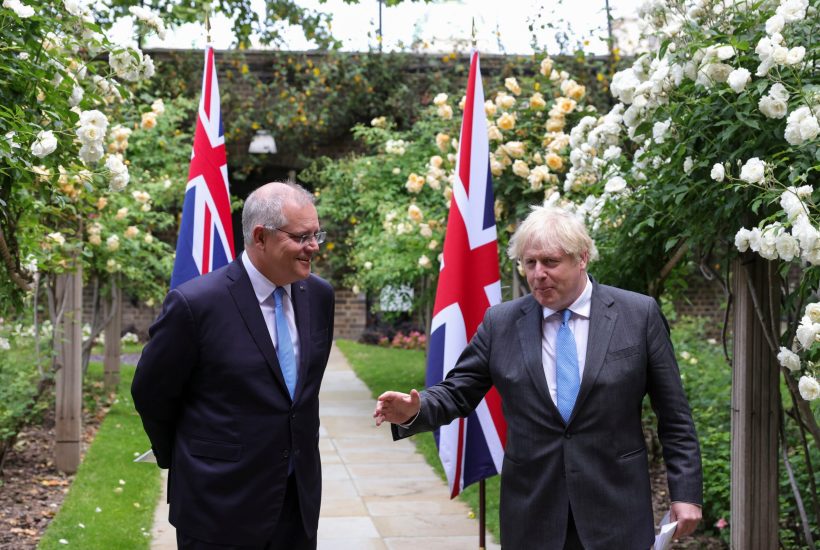A new court will be established with powers over both countries. Labour and product laws will be harmonised. Flags with kangaroos and crowns will flutter over buildings, there will be a special parliament moving weekly from Cairns to Coventry and an anthem that mashes up Rolf Harris and The Beatles will be played at every opportunity.
There were lots of things that could have been in the Australian-UK trade deal that was finally agreed today but which aren’t. In truth, the most significant point about the deal is not what it includes, but what it doesn’t. It liberalises trade, reduces tariffs and at the margin will help the economies of both countries. But it is stripped of all the supra-national baggage that the EU and its dwindling band of supporters insist are essential to ‘free trade’ — and for that very reason it is vastly superior to Europe’s creaking, overly-complex single market.
The UK has signed plenty of trade agreements around the world — 70 at the last count — since we left the EU. But mostly they simply rolled over existing EU agreements. The Australian deal is the first one negotiated from scratch. There are some easy wins in there. It will eliminate tariffs of Aussie wines such as Jacob’s Creek — yay! — while Scotch whisky and British chocolate will be cheaper on the other side of the Pacific. More significantly perhaps, there will be freedom of movement for people under 35: the European cocktail waiter is about to be replaced by an Austrialian one. Agricultural tariffs will be eliminated, but over 15 years which will give Welsh lamb farmers a chance to think of a new way of doing business. Overall, trade between the UK and Australia is worth £13.9 billion, and, at the margins, should increase once the deal is agreed and ratified.
But its real significance is that it sets a template for what a 21st-century trade deal should look like. For years, we have been lectured by europhiles that free trade requires a pooling of sovereignty. An overall governing structure had to be established. Products had to be regulated by a central authority. Common tariffs had to be agreed. A civil service and parliament had to be created, with budgets, presidents and perhaps a foreign policy as well. Without all of that, it simply wouldn’t be possible for tariffs and quotas to be eliminated.
And yet, it turns out, that is not actually true. Between developed countries you can simply eliminate tariffs and recognise each other’s product standards, with the right to opt out where they are not appropriate. The result? You get all the benefits of free trade and greater mobility of labour and capital but while remaining self-governing nations. In truth, 30p off a bottle of Jacob’s Creek doesn’t matter much either way. But that principle is an important one. And the UK-Australia deal shows that it is perfectly possible.
Got something to add? Join the discussion and comment below.
Get 10 issues for just $10
Subscribe to The Spectator Australia today for the next 10 magazine issues, plus full online access, for just $10.





















Comments
Don't miss out
Join the conversation with other Spectator Australia readers. Subscribe to leave a comment.
SUBSCRIBEAlready a subscriber? Log in